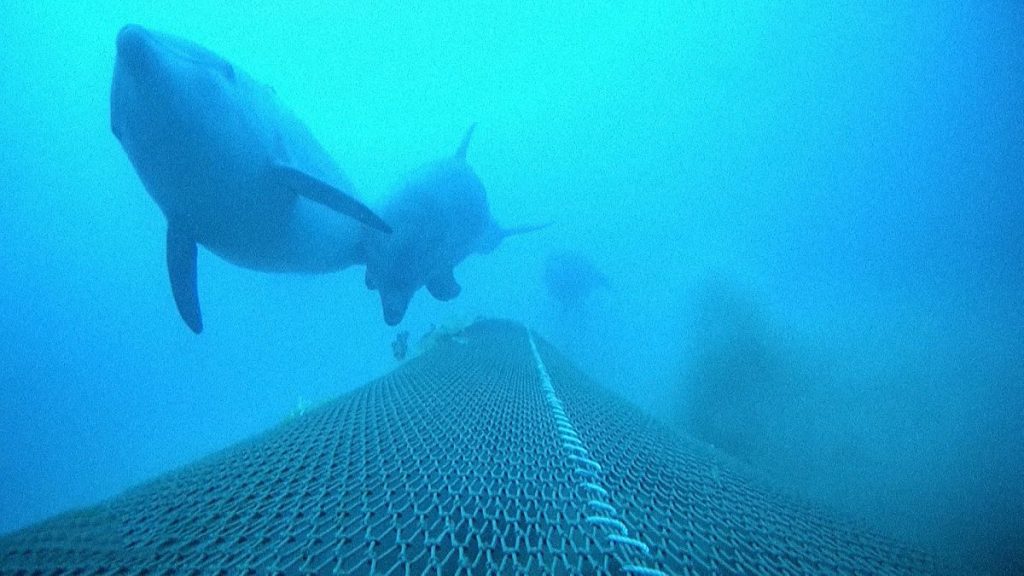The Bay of Biscay, a crucial fishing ground in the Atlantic, faces a critical ecological dilemma: balancing the livelihoods of its fishing communities with the protection of its abundant dolphin population. The bay, home to an estimated 200,000 dolphins, has witnessed a concerning surge in dolphin strandings in recent years, many bearing the grim marks of entanglement in fishing nets. This alarming trend has spurred scientists and environmentalists to call for urgent action, prompting the French government, with subsequent backing from the European Union, to implement a month-long fishing ban during the peak winter fishing season. This ban, affecting vessels over 8 meters in length, aims to reduce dolphin bycatch and mitigate the escalating stranding crisis. However, this protective measure has ignited a heated debate, pitting the economic concerns of the fishing industry against the imperative of marine conservation.
The fishing community, heavily impacted by the ban, argues that they are being unfairly burdened with the responsibility for the dolphin strandings. Fishermen maintain that they have proactively adopted measures to minimize accidental catches, equipping their vessels with acoustic deterrents and reflective devices designed to ward off dolphins. Sébastien Biolchini, a representative of the Finistère fishing community in Brittany, emphasizes their commitment to responsible fishing practices and their frustration at the perceived inadequacy of the government’s compensation scheme. While the state offers compensation of up to 85% of lost income during the ban period, this fails to account for the full financial impact, particularly for smaller, coastal fishing operations that face significant losses during the peak season, often exacerbated by unfavorable weather conditions. Biolchini highlights the economic precariousness of the situation, emphasizing the difficulty in making long-term investments under such uncertain circumstances.
The economic repercussions of the fishing ban extend far beyond the fishermen themselves, rippling through the interconnected web of the local economy. Fish auctions experience reduced activity, impacting fishmongers, traders, and transport services. Ship repair businesses and other ancillary industries also suffer from the decreased fishing activity, creating a domino effect of economic hardship throughout the region. The complexity of the situation underscores the delicate balance required between preserving the marine ecosystem and safeguarding the economic viability of the fishing industry. The ban, while intended to protect dolphins, inadvertently jeopardizes the livelihoods of those who depend on the sea for their sustenance and income.
Scientific investigations into the root causes of the increased dolphin strandings are ongoing, adding another layer of complexity to the issue. Clara Ulrich, a fisheries expert at the French Institute for Ocean Research (Ifremer), acknowledges the concerns of the fishing community and points out that while the 2024 fishing ban did correlate with a reduction in dolphin deaths, similar reductions were also observed before and after the ban, suggesting that the ban alone cannot fully explain the fluctuating mortality rates. Research continues to explore the interplay of various factors, including the impact of climate change, which may be driving dolphins closer to shore in search of food, thereby increasing their interactions with fishing vessels and elevating the risk of entanglement.
The Bay of Biscay dolphin crisis exemplifies the inherent challenges in achieving sustainable fishing practices. The imperative to protect marine life often clashes with the economic realities of fishing communities, creating a complex dilemma that requires nuanced solutions. The current debate revolves around the efficacy and fairness of the fishing ban, with fishermen arguing that it unfairly penalizes them while failing to address the underlying causes of the strandings. The scientific community, while acknowledging the need for protective measures, also emphasizes the importance of ongoing research to fully understand the complex interplay of factors contributing to the problem.
The Bay of Biscay situation represents a microcosm of the broader global challenge of balancing human needs with environmental protection. The pursuit of sustainable fishing practices necessitates a multi-faceted approach that incorporates scientific research, economic considerations, and the active participation of all stakeholders. Finding a solution that protects both dolphins and the livelihoods of those who depend on the bay requires a collaborative effort, one that acknowledges the complexities of the problem and seeks to address its root causes while mitigating the economic impacts on the fishing community. The future of the Bay of Biscay, and indeed the future of our oceans, depends on our ability to find such a balance, where both human activity and marine life can thrive in harmony.

